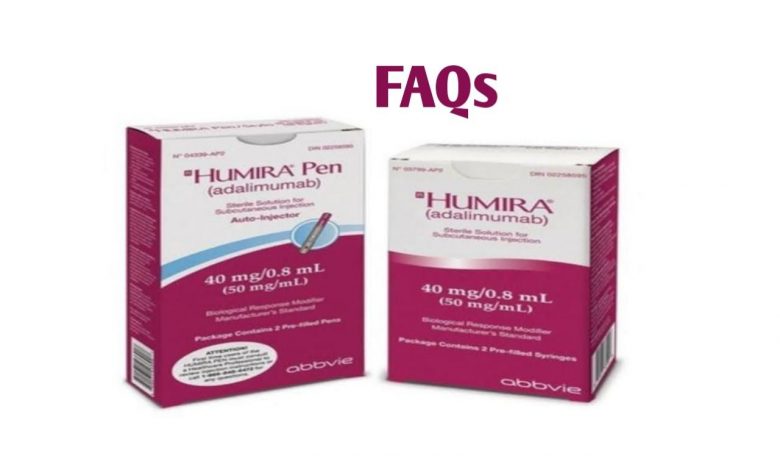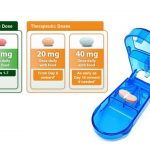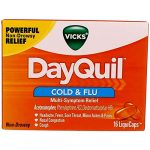Humira: Frequently Asked Questions (FAQs)

What is Humira?
Humira is a medication that contains the active ingredient adalimumab a tumor necrosis factor (TNF) blocker that reduces the effects of a substance in the body that can cause inflammation. Humira is used to treat many inflammatory conditions in adults, such as rheumatoid arthritis, psoriatic arthritis, ankylosing spondylitis, plaque psoriasis, and a skin condition called hidradenitis suppurativa.
Humira is also used in adults and children to treat Crohn’s disease, juvenile idiopathic arthritis, ulcerative colitis, and uveitis.
When was Humira approved?
Humira was approved by the US Food and Drug Administration (FDA) for the treatment of rheumatoid arthritis on 31st December 2002. In 2003, Humira was launched for rheumatoid arthritis and continued clinical studies for additional indications.
Is there a redesigned version of Humira available?
Yes, Humira Citrate-free is the same Humira you’ve come to count on with less pain immediately following injection.*
The active ingredient (adalimumab) is the same as it has been for over 15 years, with the same results of Humira you’ve come to count on.
How does Humira work?
Humira targets and blocks TNF-alpha. TNF plays a role in the process that causes inflammation. Because TNF blockers, including Humira, affect the immune system, they can lower the ability to fight infections and may cause other serious side effects.
What is the most important information I should know about Humira?
You should discuss the potential benefits and risks of Humira with your doctor. Humira is a TNF blocker medicine that can lower the ability of your immune system to fight infections. You should not start taking Humira if you have any kind of infection unless your doctor says it is okay.
• Serious infections have happened in people taking Humira. These serious infections include tuberculosis (TB) and infections caused by viruses, fungi, or bacteria that have spread throughout the body. Some people have died from these infections. Your doctor should test you for TB before starting Humira, and check you closely for signs and symptoms of TB during treatment with Humira, even if your TB test was negative. If your doctor feels you are at risk, you may be treated with medicine for TB.
• Cancer. For children and adults taking TNF blockers, including Humira, the chance of getting lymphoma or other cancers may increase. There have been cases of unusual cancers in children, teenagers, and young adults using TNF blockers. Some people have developed a rare type of cancer called hepatosplenic T-cell lymphoma. This type of cancer often results in death. If using TNF blockers including Humira, your chance of getting two types of skin cancer (basal cell and squamous cell) may increase. These types are generally not life-threatening if treated; tell your doctor if you have a bump or open sore that doesn’t heal.
What should I tell my doctor BEFORE starting Humira?
Tell your doctor about all of your health conditions, including if you:
• Have an infection, are being treated for infection, or have symptoms of an infection
• Get a lot of infections or infections that keep coming back
• Have diabetes
• Have TB or have been in close contact with someone with TB, or were born in, lived in, or traveled where there is more risk for getting TB
• Live or have lived in an area (such as the Ohio and Mississippi River valleys) where there is an increased risk for getting certain kinds of fungal infections, such as histoplasmosis, coccidioidomycosis, or blastomycosis. These infections may happen or become more severe if you use Humira. Ask your doctor if you are unsure if you have lived in these areas
• Have or have had hepatitis B
• Are scheduled for major surgery
• Have or have had cancer
• Have numbness or tingling or a nervous system disease such as multiple sclerosis or Guillain-Barré syndrome
• Have or had heart failure
• Have recently received or are scheduled to receive a vaccine. Humira patients may receive vaccines, except for live vaccines. Children should be brought up to date on all vaccines before starting Humira
• Are allergic to rubber, latex, or any Humira ingredients
• Are pregnant, planning to become pregnant, breastfeeding, or planning to breastfeed
• Have a baby and you were using Humira during your pregnancy. Tell your baby’s doctor before your baby receives any vaccines
Also, tell your doctor about all the medicines you take. You should not take Humira with ORENCIA® (abatacept), KINERET® (anakinra), REMICADE® (infliximab), ENBREL® (etanercept), CIMZIA® (certolizumab pegol), or SIMPONI® (golimumab). Tell your doctor if you have ever used RITUXAN® (rituximab), IMURAN® (azathioprine), or PURINETHOL® (mercaptopurine, 6-MP).
How do I use Humira?
You take Humira by giving yourself an injection under the skin, every other week. Humira cannot be taken by mouth. Do not try to inject Humira yourself until you have been shown the right way to give the injections. If your doctor decides that you are able to give your injections at home, you should receive training on the right way to prepare and inject Humira.
Please remember: Your first Humira injection should be given under the supervision of a nurse or health care professional. Always consult with your health care professional before you start taking Humira. You can call your doctor or 1.800.4Humira (1.800.448.6472) if you have questions about giving yourself an injection.
One of the most common side effects of Humira is injection site reactions such as pain, redness, rash, swelling, itching, or bruising. These symptoms usually will go away within a few days. If you have pain, redness, or swelling around the injection site that doesn’t go away within a few days or gets worse, call your doctor right away.
Signs of a serious allergic reaction include hives, trouble breathing, and swelling of your face, eyes, lips, or mouth. Call your doctor right away if you experience any of these symptoms.
Your doctor will tell you how often to take an injection of Humira. Do not inject Humira more often than prescribed. If you need additional help with self-injecting, you can view an instructional video.
When should I use Humira?
It may be a good idea to mark your calendar ahead of time with the dates of your Humira treatment. This may help you remember when to take it. Always follow your doctor’s instructions on when and how often to take Humira.
If you forget to take Humira when you’re supposed to, inject the next dose as soon as you remember. Then take your next dose when your next scheduled dose is due. This will put you back on schedule. If you’re not sure when to inject Humira, call your doctor or pharmacist.
Your doctor will tell you how often to take an injection of Humira. Do not inject Humira more often than prescribed.
How often and for how long will I have to use Humira?
Always follow your doctor’s instructions about when and how often to take Humira. Do not inject Humira more often than prescribed. If you need additional help with self-injecting, you can view an instructional video above.
What should I watch for AFTER starting Humira?
Humira can cause serious side effects, including:
• Serious infections. These include TB and infections caused by viruses, fungi, or bacteria. Symptoms related to TB include a cough, low-grade fever, weight loss, or loss of body fat and muscle.
• Hepatitis B infection in carriers of the virus. Symptoms include muscle aches, feeling very tired, dark urine, skin or eyes that look yellow, little or no appetite, vomiting, clay-colored bowel movements, fever, chills, stomach discomfort, and skin rash.
• Allergic reactions. Symptoms of a serious allergic reaction include hives, trouble breathing, and swelling of your face, eyes, lips, or mouth.
• Nervous system problems. Signs and symptoms include numbness or tingling, problems with your vision, weakness in your arms or legs, and dizziness.
• Blood problems (decreased blood cells that help fight infections or stop bleeding). Symptoms include a fever that does not go away, bruising or bleeding very easily, or looking very pale.
• Heart failure (new or worsening). Symptoms include shortness of breath, swelling of your ankles or feet, and sudden weight gain.
• Immune reactions including a lupus-like syndrome. Symptoms include chest discomfort or pain that does not go away, shortness of breath, joint pain, or rash on your cheeks or arms that gets worse in the sun.
• Liver problems. Symptoms include feeling very tired, skin or eyes that look yellow, poor appetite or vomiting, and pain on the right side of your stomach (abdomen). These problems can lead to liver failure and death.
• Psoriasis (new or worsening). Symptoms include red scaly patches or raised bumps that are filled with pus.
Call your doctor or get medical care right away if you develop any of the above symptoms.
Common side effects of Humira include injection site reactions (pain, redness, rash, swelling, itching, or bruising), upper respiratory infections (sinus infections), headaches, rash, and nausea. These are not all of the possible side effects of Humira. Tell your doctor if you have any side effect that bothers you or that does not go away.
Remember, tell your doctor right away if you have an infection or symptoms of an infection, including:
• Fever, sweats, or chills
• Muscle aches
• Cough
• Shortness of breath
• Blood in phlegm
• Weight loss
• Warm, red, or painful skin or sores on your body
• Diarrhea or stomach pain
• Burning when you urinate
• Urinating more often than normal
• Feeling very tired
Will Humira cure my disease?
Unfortunately, there are no current medicines available that can cure your disease.
What should I do with my used Pen or syringe after I take Humira? Can I reuse the needle?
Humira comes in single-use, prefilled Pens, or prefilled syringes. The needle is not removable or reusable. You should always check with your health care provider for instructions on how to properly dispose of used Pens and syringes. You should follow any special state or local laws regarding the proper disposal of Pens and syringes.
Can I use Humira if I’m taking other medicines for my condition?
Yes, you can take certain other medicines if your doctor has prescribed them, or has told you it’s okay to take them while you’re taking Humira. Tell your doctor about all the medicines you take. You should not take Humira with Orencia® (Abatacept), Kineret® (Anakinra), Remicade® (Infliximab), Enbrel® (Etanercept), Cimzia® (certolizumab pegol), or Simponi® (golimumab). Tell your doctor if you have ever used Rituxan® (rituximab), Imuran® (Azathioprine), Or Purinethol® (mercaptopurine, 6-MP).
A rare type of cancer called hepatosplenic T-cell lymphoma, often resulting in death, has developed in some people. Most were male teenagers or young men with inflammatory bowel disease who were being treated with another medicine called Imuran (azathioprine) or Purinethol (6‐mercaptopurine, 6‐MP).
How should I store Humira?
Humira needs to be stored in a refrigerator (2°C-8°C/36°F-46°F) in its original container and protected from light until it’s used. Humira should never be put in the freezer or frozen. Do not use Humira if frozen, even if it has been thawed. Refrigerated Humira may be used until the expiration date printed on the prefilled syringe or Pen. Do not use a Pen or prefilled syringe if the liquid is cloudy, discolored, or has flakes or particles in it. Care should be taken to avoid dropping or crushing the Pen and prefilled syringe as they contain glass.
Can I store Humira at room temperature?
If needed, for example when traveling, Humira may be stored at room temperature up to a maximum of 77°F (25°C) for a period of up to 14 days, with protection from light. Humira should be discarded if not used within the 14-day period.
When not traveling, your Humira Pen or prefilled syringe should be stored in a refrigerator at 36°F to 46°F (2°C to 8°C) in its original carton until you are ready to use it.
My Humira carton says that it “may be stored at room temperature.” What is considered room temperature?
Room temperature is up to 77°F (25°C). In addition, the Humira Pen or prefilled syringe should be protected from direct sunlight and stored in its original carton until you are ready to use it. Humira may be stored at room temperature for a period of up to 14 days, with protection from light. Humira should be discarded if not used within the 14-day period.
How long can I store my Humira Pen or prefilled syringe at room temperature?
Once you remove your Humira Pen or prefilled syringe from the refrigerator, it must be used within 14 days. If not used within 14 days, it must be discarded.
Can I put my Humira Pen or prefilled syringe back in the refrigerator after I’ve already taken it out and allowed it to reach room temperature?
Once your Humira Pen or prefilled syringe has reached room temperature, it must be used within 14 days even if it is put back in the refrigerator. Humira that has reached room temperature must be discarded if it is not used within the 14-day period.
What should I do if I have not used my unrefrigerated Humira Pen or prefilled syringe within the 14-day period?
Do not use it and call your pharmacist immediately to let them know that your Humira Pen or prefilled syringe has been stored out of the refrigerator for more than 14 days. Your pharmacist will be able to advise you on how you may obtain a new Humira Pen or prefilled syringe.
Should I record the date when I take my Humira Pen or prefilled syringe out of the refrigerator?
Yes. Record the date when Humira is first removed from the refrigerator in the spaces provided on the carton and dose tray.
Should I inject Humira at room temperature?
If more comfortable, take your Humira Pen or prefilled syringe out of the refrigerator for 15-30 minutes before injecting to allow the liquid to reach room temperature. Do not remove the cap or cover while allowing it to reach room temperature. Do not warm Humira in any other way (for example, do not warm in a microwave or under hot water).
Why is Humira so expensive?
One of the reasons that Humira is so expensive is because it’s a complex medication to make. DNA technology must be used to create proteins for the drug—a process that can’t be replicated, unlike with synthetically manufactured medications.
How can Humira Complete help me?
Whether you’re just starting Humira or have been continuing on treatment, Humira Complete offers a range of resources and tools to support you at no additional cost. You can choose the resources and tools that are most useful to you, including help with injections, on-call nurse support, medication reminders, and the Humira Complete Savings Card.
How can I save on Humira?
For eligible patients, the Humira Complete Savings Card may help you reduce the amount you have to pay for your Humira. Learn more here.
What if I can’t use my Humira Complete Savings Card at my pharmacy?
If your pharmacy is unable to process your Humira Complete Savings Card for instant savings, you may still be able to save on Humira by receiving a rebate for the amount you paid out of pocket for your prescription. Simply call 1.800.4Humira (1.800.448.6472) and speak to one of their Insurance Specialists to see if this option is right for you.
Can I use Humira if I have my health insurance through Aetna?
Patients with Aetna health insurance may require additional approvals for Humira. Call 1.800.4Humira (1.800.448.6472) and talk with one of their Insurance Specialists to better understand your plan’s coverage for Humira and what options may be available to reduce the cost of your prescription.
Are there fake versions of Humira?
Yes, there have been reports of fake versions of this drug in Eastern Europe. Counterfeiters lack the DNA technology required to create proteins for the production of the drug like they often do with synthetic medications. Counterfeit Humira is useless, always ensure you get your Humira from the right channels to avoid fake medications. Humira requires a prescription to be dispensed by a pharmacy in the US. Because of this, the Humira pen is not available as Humira OTC (over the counter) and one cannot simply buy Humira online.
What is a Humira Ambassador?
A Humira Ambassador is a registered nurse who is there to listen, answer your questions about Humira, and help you every step of the way. Your Humira Ambassador is fully dedicated to you. Your Ambassador understands that starting a new treatment may be challenging and is there to listen and provide you with the resources you need when you need them. An Ambassador can also help empower you to navigate the insurance process, understand your benefits and potential ways to manage the cost of your prescription, and develop a routine to support the treatment plan your doctor has prescribed.
Humira Ambassadors do not give medical advice and will direct you to your health care professional for any treatment-related questions, including further referrals.





